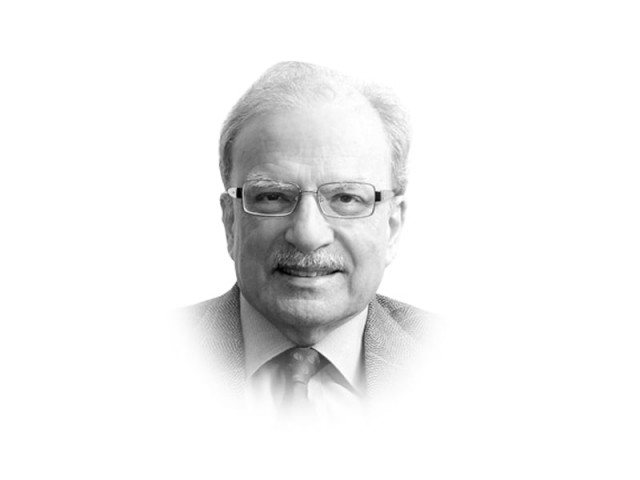How the world viewed Trump’s fall
The world nervous at the prospect of another four years of a Trump presidency heaved a sigh of relief

Most of Europe did not wait long before responding to the news coming out of the television networks in the United States. At 11:24 AM on Saturday, November 7, CNN gave the state of Pennsylvania to Joseph Biden. The state’s 20 votes in the Electoral College put Biden well above the needed to win the presidency. The needed number was 270. With 273 votes he was thus the president-elect. More votes were added as Nevada and Arizona came in for Biden. The last state to join the Biden bandwagon was the state of Georgia, for decades a Republican stronghold. At the time of this writing, Biden was almost seven million votes ahead of President Trump. This was the most received ever by a candidate for the American presidency.
The world nervous at the prospect of another four years of a Trump presidency heaved a sigh of relief. Even though the opposition to Trump was expected to do better than it did, there was rejoicing both inside the country and outside that Trump was convincingly denied another term in office. This was the case in particular “after an election campaign”, wrote Lexington in a column in the news magazine, The Economist, “that had featured the President at his worst. In the midst of a deadly pandemic, he decried public-health experts and ridiculed his opponent for following their advice. He gave nodding support to a conspiracy theory which holds that Democrats are devil-worshipping paedophiles. He called Kamala Harris — Joe Biden’s black, female running mate — a monster.”
“Diplomats and commentators expressed gratitude, satisfaction, and even jubilation that a new president would bring a much-needed return to normalcy — something that vanished alarmingly the day Mr Trump took office,” wrote Mark Landler for The New York Times. “The former vice-president is a familiar fixture on the global scene, a centrist Democrat who is likely to restore the traditional habits and methods of American power abroad,” continued Landler. “Mr Trump, who held no office before the presidency, has been a great disrupter, leaving alliances in tatters and casting into doubt the liberal international order that the United States helped build after World War II.”
It was clear that Biden had won a convincing victory, defeating the incumbent Trump by a wide margin. But Trump refused to concede and refused also to collaborate with the in-coming president to have a smooth transition in January 2021. Not only that, his associates launched a process to deny Biden victory and succeed Trump in the White House. They hoped this could be done by the states in which legislatures were under the control of the Republican Party to send electors they would choose to the meeting of the Electoral College. At this time, it does not seem the move would succeed. All indications are that Biden would be sworn as the 46th US president. With that transition, America would return to being a partner with other major world nations in establishing a world order that would meet the needs of the time.
The world order Washington helped to craft after having won the war in Europe made the US a partner in the new enterprise. It chose not to totally dominate the new structure of relationships. Following the advice of John Maynard Keynes, the British economist who had studied the economic collapse of post-World War I Europe, the Americans rebuilt the countries they had helped defeat. A number of new institutions were founded to bring all countries into the international political and economic systems. The US had an important voice in the system but did not totally dominate it. They also preferred to work within multi-country organisations, especially those created to protect the space that had become available to their allies after the Second World War. Of these the North Atlantic Treaty Organization, NATO, was the most important. Washington contributed both troops and financial resources to it. Its main objective was to contain the Soviet Union.
For those who were deeply concerned about the endurance of “Trumpism” it was not clear what it precisely is. The above-referred Lexington column attempted to find a definition. “A mixture of isolationism, cronyism, nativist rhetoric, somewhat performative authoritarianism, corporate tax cuts and personality cult. Trumpism is what the President says it is.” At one point the President attempted to define what he stood for. On January 20, 2017, when he was sworn in as America’s 45th president, he made clear that he did not accept the assumptions behind the post-World War order. His presidency, he said in his inaugural address, would operate on the basis of “America First”. This way he would “make America great again”. He started off by asking European nations to spend more on their defence, reducing the burden Washington had carried for decades. In international meetings, he behaved in ways that were both unprecedented and unacceptable. At a G7 meeting in Canada, he refused to sign the communiqué the group wished to issue, and simply left the meeting and took off in his plane.
“You will have a coherent conversation with a normal guy,” commented Gerard Araud, the former French ambassador to Washington. He was reacting very favourably to the coming change of leadership in the US. He was a witness to several conversations between Emmanuel Macron, the French president, and Donald Trump. He said that the arrival of Joe Biden — a “nice guy, a smiling guy”, as he put it — would have emotional resonance for most Europeans, particularly older ones, who struggled to reconcile Trump’s unyielding “America First” vision with the generous country they knew in the post-war period. “They need to love America,” continued the former ambassador. “There is a sentimental relationship with America, which the Americans always underestimate.”
The Middle East was one world region that did not seem to look with favour to the change that was taking place in the US as a result of the elections. Donald Trump possibly under the influence of Jared Kushner, his Jewish son-in-law, had been exceptionally close to the leadership of Israel. This was the case in particular with the accommodating policies Trump had adopted with respect to the Jewish state. This included the decision to move the American embassy from Tel Aviv to the disputed city of Jerusalem. The Palestinians had not given up their claim to the city and saw it eventually as the capital for their state. Kushner had also overseen the recognition of Israel by some Arab states. The United Arab Emirates had allowed air flights by the Israeli airline to Abu Dhabi. Bahrain and Sudan had also drawn up plans to develop economic relations with Israel.
Landler in his above-quoted review of the world’s reaction to the election of Biden as the next American president noted: “There was no immediate reaction from the Arab leaders like Crown Prince Mohammed bin Salman of Saudi Arabia, Mohammed bin Zayed, crown prince of Abu Dhabi, or President Abdel Fattah El Sisi of Egypt — all of whom cultivated close ties with Mr Trump and basked in his attention.”
Published in The Express Tribune, November 23rd, 2020.
Like Opinion & Editorial on Facebook, follow @ETOpEd on Twitter to receive all updates on all our daily pieces.
















COMMENTS
Comments are moderated and generally will be posted if they are on-topic and not abusive.
For more information, please see our Comments FAQ